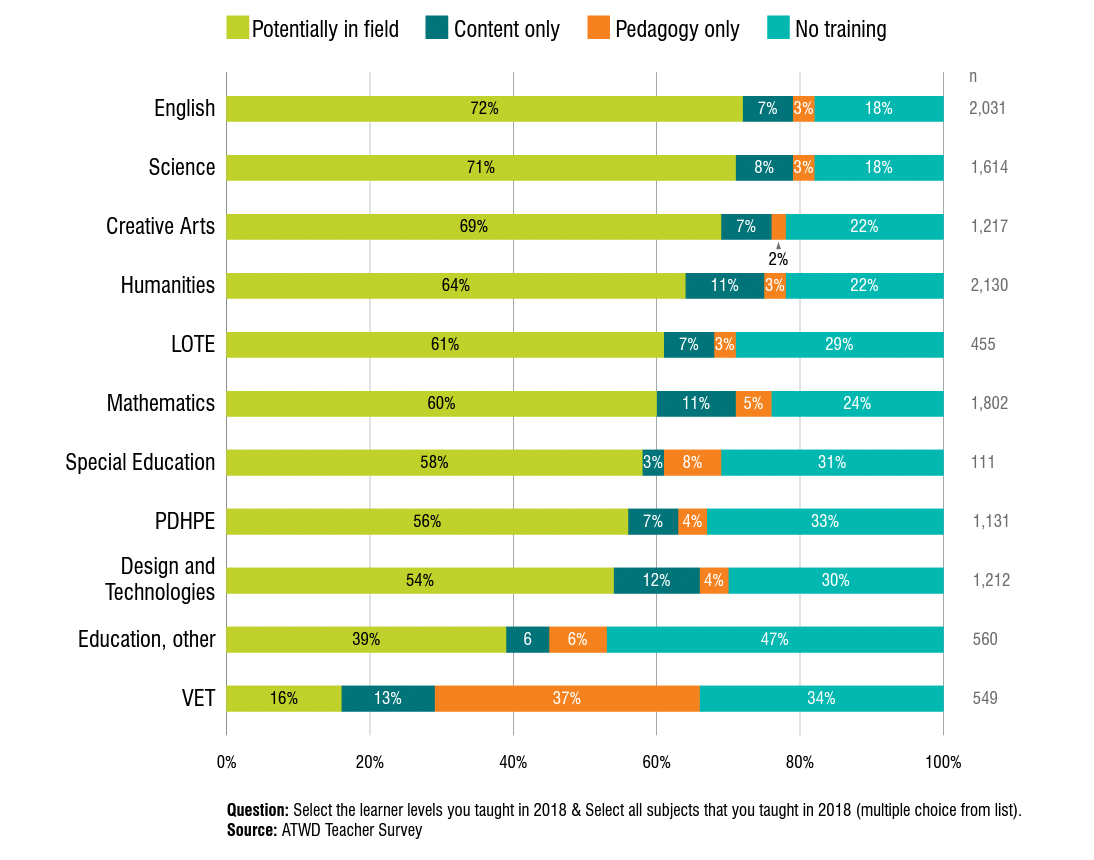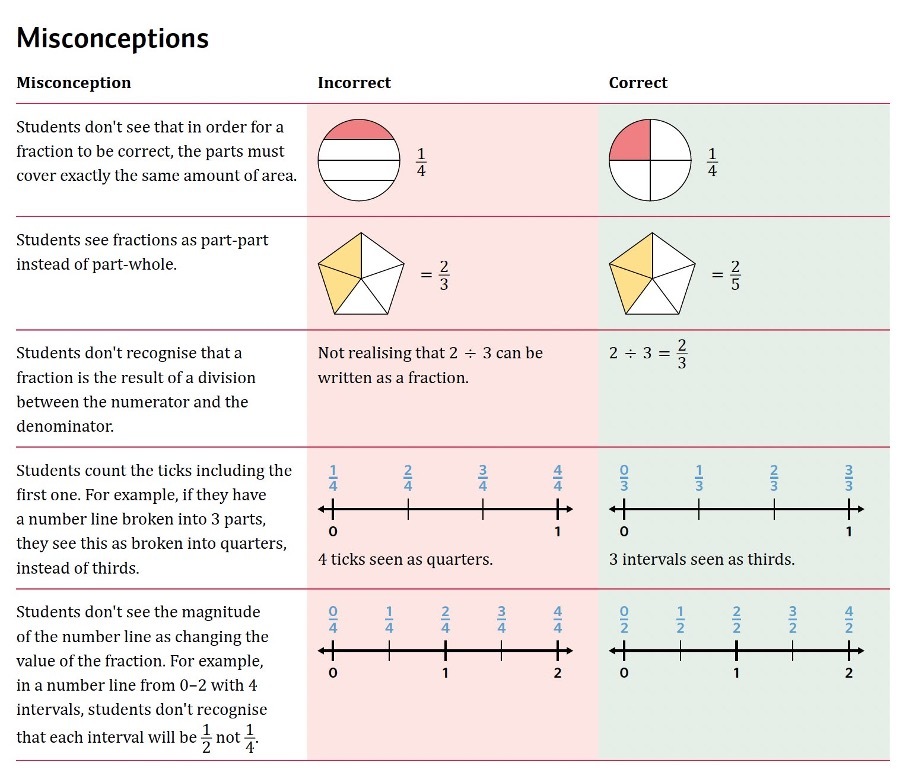Teaching out-of-field survival guide
I recently talked to a teacher who had spent 2 terms teaching Year 7 Maths. As a non-Mathematics trained teacher, but very experienced in her subject areas, she generously shared some of her insights and strategies for teaching out-of-field.
Teaching out-of-field
This teacher is not alone. A 2021 report by the Australian Institute for Teaching and School Leadership (AITSL) indicates that around 1 in 5 secondary teachers are teaching out-of-field, that is, teaching a subject for which they have no qualifications. For secondary Mathematics, this is slightly higher at 24% from the most recent teacher workforce data. With the disruptions and staff shortages throughout much of the past 6-12 months, there would likely be even more teachers in this boat.

We all know as teachers (I too was a teacher prior to joining Edrolo), that a lot of teaching strategies are transferable. But there is also a lot that is not, specifically pedagogical content knowledge. Pedagogical content knowledge is how you teach something, as well as knowing what students will find easy or difficult, common misconceptions, and how to scaffold learning specifically for that discipline.
Pedagogical content knowledge
So for example, in Year 7 Science an experienced and qualified teacher (with pedagogical content knowledge for their subject), knows that students need to learn about balanced and unbalanced forces before they can learn why objects move. They know when teaching this that students will often trip on the concept of inertia (objects do not need constant ‘pushing’ to remain in motion). They know strategies to help students with this, such as using real-world examples and practicals that help them investigate friction.
Teachers teaching out-of-field may not have this, as pedagogical content knowledge is subject-specific. So here are some of the gems the aforementioned teacher shared with me - and I’m passing them along knowing that there are many teachers out there for whom this might relate, and it may be useful.
Get across the content
This is fundamental - even if you’re just a couple of lessons ahead of the students. There are plenty of resources online (including video) that can help with this. For this particular teacher, she was using Edrolo for Year 7 Maths (hence how we connected). For her this was a massive help as she could use the video lessons, video solutions and Powerpoint slides to make sense of all the theory, ahead of teaching this to students. The fully-worked solutions in the print resource meant she felt confident guiding students through activities in class too.
Plan for common student misconceptions
Knowing where students might get stuck means you can structure teaching around this, and set them up for success. Find out what the common misconceptions or mistakes might be for a lesson/ learning sequence, and plan for those. This is again where Edrolo can help as the Year 7 Maths resource calls out common misconceptions for every lesson. This provides a heads-up to teachers on where students might struggle so you can guide students away from errors and set them up for success.

Set a routine
It can be even more valuable than usual, to have a clear structure to follow if you’re teaching out-of-field. It can help with planning and make things more manageable, so it feels less like starting from scratch. For example if you have 6 x 40 minute periods each week for Maths, break this down into teaching content, questions/ activities (both online and in the textbook) for practice and consolidation, and a weekly quiz. A quiz has dual benefits - it helps get students used to sitting tests but will also give regular feedback to help track progress.
Track progress
Not knowing where students are likely to struggle or hit hurdles means you will probably want more regular student formative assessment data. This is where a weekly quiz (about 10 questions) can help to quickly check progress. If 1 or 2 students have something wrong it’s a chance to do some targeted teaching with them, but if the whole class is struggling then you can reteach a concept.
Edrolo can again help here as students can complete all the Maths print textbook questions on the Edrolo online platform. Students’ answers are auto-marked, giving valuable data to track progress but without taking time to mark. The textbook questions all have a chilli rating too, which can help teachers and students track confidence and progress over time.
Learn together
At the end of the day, you’re not going to be able to anticipate every question or misconception students might have. There will be somethings you don’t know the answer to (this even occasionally happens in subjects we have taught before!) If this happens it can be a great chance to explore or learn together. It makes for a great ‘teachable’ moment and a chance to model great learning.

